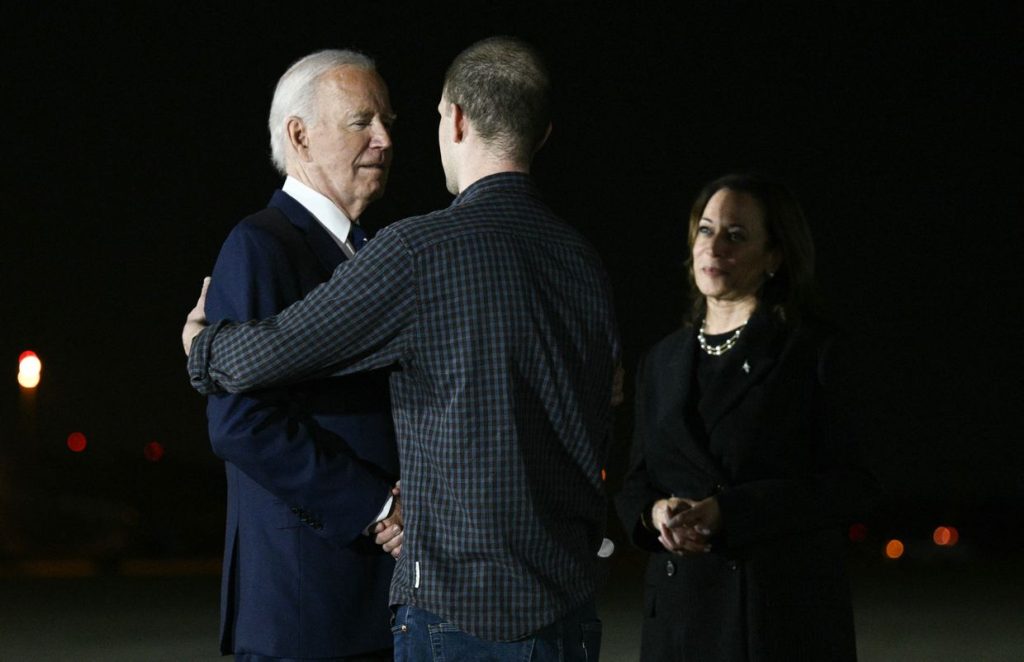Several American prisoners, including Wall Street Journal reporter Evan Gershkovich and former U.S. Marine Paul Whelan, were released by Russia in a multi-country prisoner exchange. The exchange was confirmed by Turkey’s National Intelligence Organization and took place in Ankara. The prisoners arrived in Maryland on August 1, where they were greeted by U.S. President Joe Biden and Vice President Kamala Harris. The newly released Americans were able to reunite with their families who were waiting for them at Joint Base Andrews. The exchange involved 26 prisoners in total, with 10 being transferred to Russia, 13 to Germany, and three to the U.S.
Evan Gershkovich, who was working as a reporter in Yekaterinburg, was arrested in March 2023 while researching the Wagner mercenary group’s recruiting methods and Russian citizens’ views on the invasion of Ukraine. He was sentenced to 16 years in prison on charges of espionage, a decision that was widely criticized as politically motivated. Alsu Kurmasheva, a journalist with Radio Free Europe/Radio Liberty (RFE/RL), was also among the released prisoners. She had been sentenced to six and a half years in jail in Russia’s Republic of Tatarstan for allegedly spreading false information about the Russian Armed Forces.
The prisoner exchange also involved other individuals from Russia and Western countries. The Insider published a list of 24 prisoners to be exchanged, including opposition figures, human rights activists, artists, and businessmen. Belarusian dictator Alexander Lukashenko pardoned a German citizen who was also part of the swap. In return, Russia released eight Russians who were held in Western countries on various charges, including espionage and hacking. The swapped prisoners started arriving at European airports on August 2, with planes landing in Slovenia, Germany, and Poland.
One of the notable prisoners released in the swap was Vadim Krasikov, a Kremlin assassin who was imprisoned in Germany for murdering Zelimkhan Khangoshvili. The historic prisoner exchange involved individuals with diverse backgrounds, including killers, spies, and smugglers. The agreement was seen as a significant diplomatic achievement, with countries working together against their own interests to facilitate the release of the prisoners. Russian dissident Vladimir Kara-Murza was also freed as part of the swap, highlighting the complex nature of international relations. The exchanged prisoners were welcomed back by their respective governments and families, marking the end of a challenging chapter in their lives.


